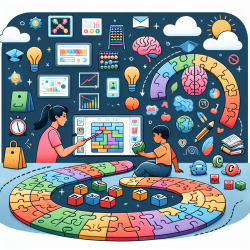As a practitioner dedicated to improving outcomes for children, it's crucial to stay informed about the latest research and methodologies that can enhance your practice. One such approach gaining traction across various sectors, including health, education, criminal justice, and social care, is relational practice. A recent scoping review titled Relational practice in health, education, criminal justice, and social care: a scoping review sheds light on how relational practice can be implemented to create better outcomes.
Relational practice focuses on prioritizing interpersonal relationships in service provision, both in organizational contexts and how it is received by workers and service users. This approach can significantly enhance the effectiveness of interventions and foster a healthier relational environment.
Key Findings from the Research
The scoping review analyzed 158 articles and identified several key benefits and challenges associated with relational practice:
- Enhanced Outcomes: Relational practice has been linked to improved mental health recovery, better social integration, and enhanced educational outcomes.
- Workforce Benefits: Practitioners reported increased job satisfaction, better team cohesion, and enhanced interpersonal skills.
- Organizational Impact: The implementation of relational practice led to healthier, more sustainable communities and improved service delivery.
How to Implement Relational Practice in Schools
For those in the educational sector, here are some actionable steps to integrate relational practice into your work:
- Foster Positive Relationships: Encourage open communication and trust-building activities among students and staff.
- Inclusive Environments: Create spaces where every student feels valued and included. This can be achieved through inclusive classroom practices and restorative justice programs.
- Professional Development: Provide training for teachers and staff on the principles and benefits of relational practice. This can help in developing the necessary skills to foster a relational environment.
- Collaborative Approaches: Engage parents, caregivers, and the community in the educational process. Collaborative efforts can enhance the support system for students.
Encouraging Further Research
While the benefits of relational practice are clear, the research also highlights the need for more empirical studies to better understand its effectiveness across different settings. Practitioners are encouraged to participate in or initiate further research to continue building the evidence base for relational practice.
To read the original research paper, please follow this link: Relational practice in health, education, criminal justice, and social care: a scoping review.










